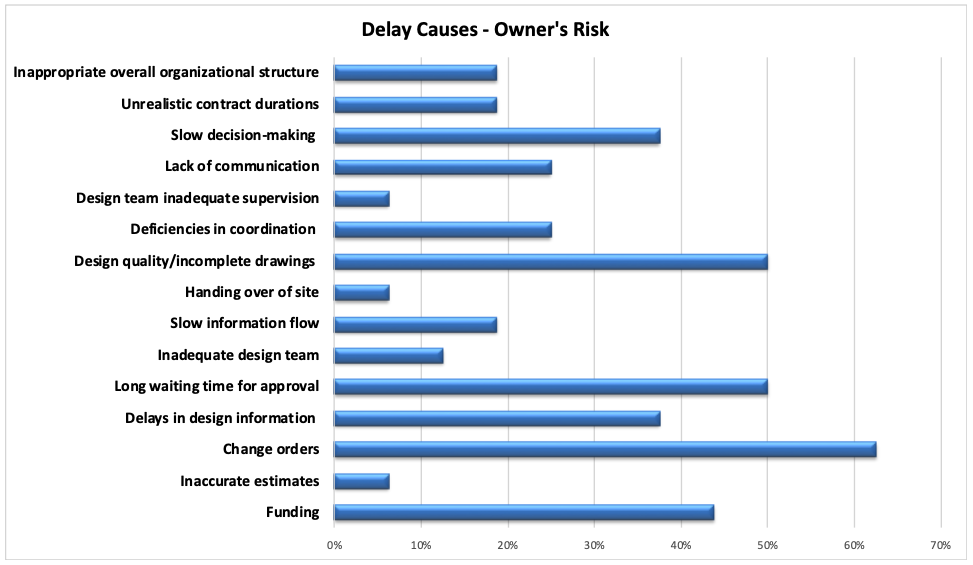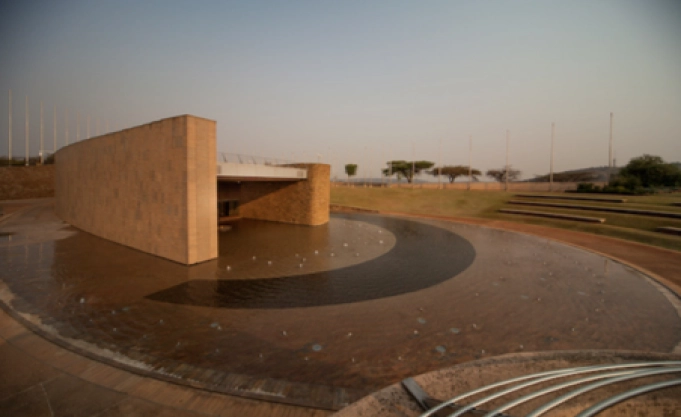It is very seldom that a construction project is not impacted by delays. Many research studies have been conducted over the years to determine the causes and effects of construction delays. Regardless of the vast body of knowledge on construction delays, the failure of many projects to finish on time remains problematic globally. What are the predominant causes of delay in construction projects? Is there some commonality in the causes of delay in different countries?
In this article, we review the findings of 17 independent studies on delay conducted in 15 different countries to
answer these questions. The results provide some very interesting insights and might influence your approach to future projects.
There are several definitions for the term delay: to make something happen later than expected; to cause something to be performed later than planned; or to not act timely. The studies under review specifically focussed on construction delays. Construction delays can be defined as the completion of a construction project at a date later than the completion date specified in the contract, or beyond the date that the parties agreed upon for delivery of a project.
The Studies
The 17 research studies that were reviewed summarised the reasons for delays in three main categories:
- contractor delays;
- owner delays; and
- external factors – where neither the contractor nor the client is directly responsible for the delay
The results of the studies were analyzed to identify common causes of delay in the 15 different countries where the studies were conducted.
Delays Caused By Contractors

Site management/supervision followed by general availability of labor were the predominant causes of delay on the side of contractors. Another significant cause of delay was planning and scheduling problems.
Delays Caused By Owners

Change orders towered above any other cause of delay owners are responsible for. With the fast-phased construction process followed in many modern construction projects, it was not a surprise to learn that design quality or incomplete drawing and the late provision of design information also featured as some of the more significant causes of delay.
Delays Caused By External Factors
Delays that fall outside of the sphere of control of the owner or the contractor were included as part of this category. Shortage of construction material was by far the most significant cause of delay in this category. Unforeseen site conditions and inclement weather also impacted a large percentage of construction projects. The influence of agencies involved in the issuing of construction permits also had a significant impact on construction progress.
Summary Of Reason For Delay Per Country
In general, a high degree of commonality in the causes of delay in the different countries existed. The table below provides the one cause of delay that occurred more than any other for the countries with delay-related research studies. It is difficult the pinpoint one cause that can be viewed as the most significant in all countries under consideration because the research methods differed. However, changes during construction and poor scheduling appear to be very significant.


Conclusion
The research studies considered were all concluded before COVID-19 impacted the execution of construction projects. It will be interesting to repeat the research to see how COVID-19 compares with the other predominant causes of delay identified.
In the work we do we are often witness to the devasting effects of project delays but what can be done to address this? A good strategy to minimize delays is to put risk-mitigating measures in place to address the most prevalent delays. It is also good practice to allocate the risk of managing the occurrence of typical delays to the contracting party that is in the best position to mitigate the risk of occurrence.
One common thread in many of the delays identified is insufficient planning and scheduling. The tremendous benefit of taking sufficient time to develop a detailed project schedule and to proactively manage and update the schedule during construction cannot be over-emphasized.




